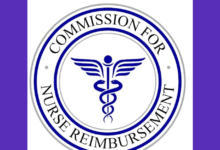Social care leaders warn against tightening visa rules

A group of health and social care leaders has urged the government to scrap “senseless proposals” to tighten visa requirements for social care workers, warning of the adverse impacts it could have on provision of services.
The Cavendish Coalition, which acts as a shared voice of employers, trade unions and educators from health and social care, has this week reiterated concerns that creating further visa restrictions would discourage internationally educated workers from coming to the UK.
It comes as, earlier this week, immigration minister Robert Jenrick was reported to have drawn up a set of proposals to cut immigration to the UK, including putting a cap on the number of visas available for social care and scrapping the shortage occupation list, which highlights jobs that employers are struggling to fill.
Mr Jenrick is also said to have unveiled controversial plans to stop those working in health and social care from bringing dependents with them.
It was reported that these ideas had been shared with No 10 and were being discussed internally.
“As a country, we must do everything we can to make ourselves a more, not less, attractive destination for employment”
Danny Mortimer
These plans are similar to those brought in by the Home Officer earlier this year, which saw overseas students banned from bringing family to the UK except under specific circumstances.
In addition, Mr Jenrick’s proposals follow an announcement last week from the Office for National Statistics, which revealed that net migration into the UK was a record 745,000 people in 2022 – higher than previously estimated.
The figure led to several calls to action from Conservative MPs to curb immigration to the UK.
However, the Cavendish Coalition, a group hosted by NHS Employers, has called on ministers to reject any proposals that would restrict health and social care visas.
The group reiterated concerns, first outlined in a letter sent earlier this year to the prime minister, that tightening visa rules could discourage internationally educated workers from coming to the UK and filling workforce gaps.
The letter said: “Some job roles in the NHS are more reliant on international staff than others, with international staff making up more than a third of the medical workforce, compared to less than 5% of managers.
“To assume, however, that these workers would come to work in the UK without their dependants would be ruinous to our services and the staffing plans you ask us to have, and there would be the additional impact that changes would have on employers of existing staff if current family visa situations were disrupted.”
In recent years, health and social care services have relied on international recruitment to plug chronic workforce shortages across the professions – including nursing.
Internationally educated staff now make up 16% of the adult social care workforce and 18% of the NHS workforce.
Earlier this year, the University of Huddersfield published research which examined the experiences of international nurses and their initial integration into the NHS in England.
The report found that around two thirds (62%) of international nurses were married and just under half (49.7%) said they had children aged 18 or under.
However, 71% of respondents said they lived without their children in England.
Notably, 94% of respondents with children aged 18 or under said they would have liked their families to have travelled with them.
Danny Mortimer, co-chair of the Cavendish Coalition and chief executive of NHS Employers, said leaders were “extremely concerned” about plans to curb how many family members health and social care workers can bring with them to the UK.
He said: “As a country, we must do everything we can to make ourselves a more, not less, attractive destination for employment, especially in the midst of a continued vacancy crisis across our sector and in the absence of long-term plans for social care services.
“With global demand [for] health workers set to rise to 80 million by 2030, we would urge the government to halt these senseless proposals and protect recruitment into social care and health services.”

Danny Mortimer
Separately, the union Unison has also called on the government to scrap the alleged plans, warning that they would be disastrous for social care.
It comes as the union has today published a new report, highlighting the level of exploitation and abuse that migrant workers staff face once they come to the UK.
The report said many care workers were being lured to the UK and then given no choice but to accept poor working conditions when they got here.
Unison general secretary Christina McAnea said: “The care system would implode without migrant care staff.
“Demonising these workers will do nothing to solve the social care crisis.”

Christina McAnea
Ms McAnea called on the government to “reform immigration rules, not make them more draconian”.
She added: “Ministers’ attention would be far better focused on fixing care and boosting pay so careers in the sector are more attractive.
“It’s time to stop scapegoating migrants and instead give councils greater funding to tackle those exploiting them.”
When asked to comment, the Home Office directed Nursing Times to the latest statement from the home secretary, James Cleverly, where he said the government remained “completely committed to reducing levels of legal migration”.
In the statement, he added: “Behind the overall migration figures are a number of important and positive changes.
“Today’s statistics, which show the biggest drivers of immigration to the UK are students and health care workers, are testament to both our world-leading university sector and our ability to use our immigration system to prioritise the skills we need.”
Mr Cleverly said the government was going to reduce migration by “eliminating the abuse and exploitation of our visa system by both companies and individuals”.
He noted that “tough action” had already been taken to “tackle the substantial rise in the number of students bringing dependents to the UK”.
He added: “We are working across government on further measures to prevent exploitation and manipulation of our visa system, including clamping down on those that take advantage of the flexibility of the immigration system.
“We will announce details of those measures in due course.”
The Department of Health and Social Care was contacted for comment.







